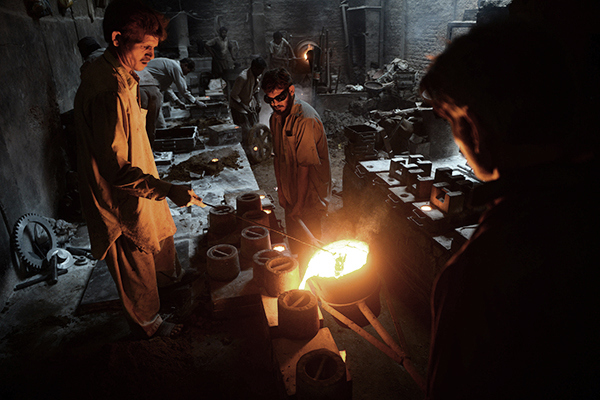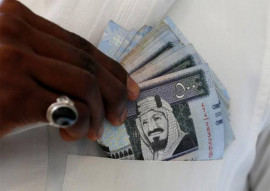
In what appears to be an attempt to deflect attention from their inability to revive the ailing state-owned Pakistan Steel Mills, civil service officials are trying to convince the cabinet that the reason they are unable to improve operations at the steel mill is because of cheap imports from China.
At the March 19 meeting of the Economic Coordination Committee (ECC) of the Cabinet, officials from the Ministry of Industries told ECC members that the 2007 Pakistan-China Free Trade Agreement (FTA) was responsible for the financial collapse of PSM. Yet even as they made this claim, ministry officials acknowledged that the real reason PSM was unable to meet its capacity utilisation targets was the fact that one of its plants was forced to shut down due to poor maintenance.
The industries ministry has jurisdiction over PSM, a state-owned steel mill in Karachi that has been embroiled in several corruption scandals in the past. PSM is the only steel mill in Pakistan that has the ability to make raw steel out of iron ore. The Nawaz administration decided to revive its privatisation process, which was aborted in 2006 following a Supreme Court decision that ruled that the previous process lacked transparency.
As a result, the industries ministry has been tasked with the target of increasing capacity utilisation at PSM to 77%, the point at which the company would reach financial breakeven, by January 2015, at which point PSM was to be put up for sale. According to the Rs18.5 billion bailout and turnaround plan approved in April 2014, the industries ministry was supposed to have gotten PSM to achieve 60% capacity by November 2014, which it failed to do because of an unexpected shutdown at the steel mill due to a poorly maintained infrastructure.
At present, despite having received the Rs18.5 billion bailout, PSM is operating at 50% capacity and industries ministry officials told the ECC that they believe they can get the company to achieve 77% capacity utilisation by April 2015. At a 60% utilisation rate, PSM’s revenues would go from the Rs600 million per month achieved during the Zardari administration to Rs4,485 million per month and net losses would decrease from Rs1,800 million per month to Rs500 million per month. At 77% utilisation, the mill would break even.
The financial situation at PSM has been so bad that auditors have refused to give an audit opinion on the company, since they believe it does not have the capacity to remain a going concern. In April 2014, the ECC was moved by Industries Ministry officials to first engage in a turnaround plan before they put PSM up for sale again.
Now, however, after having missed their deadline on reviving PSM, officials from the ministry appear convinced that the real reason the mill has not been revived is not its operational challenges of bad management and poor maintenance, but rather competition from cheap steel from China.
Published in The Express Tribune, March 28th, 2015.




1732883922-0/diddy-(48)1732883922-0-165x106.webp)

1732882586-0/Express-Tribune-(7)1732882586-0-270x192.webp)










COMMENTS
Comments are moderated and generally will be posted if they are on-topic and not abusive.
For more information, please see our Comments FAQ